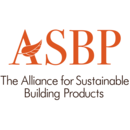Vital toolkit published to reduce avoidable packaging waste in the construction industry
Contents |
[edit] Toolkit launched
The Alliance for Sustainable Building Products (ASBP) has launched an important new toolkit to aid the construction industry in avoiding unnecessary packaging waste
The toolkit has been developed as part of the Zero Avoidable Packaging Waste in Construction (ZAP) project, funded by the Ecosurety Exploration Fund, which has explored scalable solutions to help combat the prevalence of avoidable packaging plastic waste in construction, much of which is not recycled.
Project partners include ASBP, Bankside Open Spaces Trust (BOST), award-winning architects Cullinan Studio and leading construction firms Mace and Morgan Sindall. Working with BOST and Cullinan Studio, the redevelopment of the Marlborough Sports Garden in London has acted as a live case study to understand the ability to design out packaging waste in construction and operation.
Marlborough Sports Garden (Credit – Cullinan Studio)
[edit] A prevalence of packaging in construction
There is little recent substantive data and a lack of holistic understanding of the various packaging types that are used for the vast array of products that enter a construction site, and their waste management both on and offsite. Notably, construction as a sector is the second-highest consumer of plastics.
Packaging waste may account for between 5% and 50% by volume of a construction project’s total waste, with an average of 34% by volume. An initial desktop study as part of the ZAP project found that there are very few industry-wide initiatives to reduce packaging in construction sector, although a fair proportion of individual organisations are looking at eliminating, reducing and optimising packaging. Publicly declared commitments however appear to be limited, though some companies have targets to utilise packaging with increased recycled content.
And what about plastic? Approximately 55,000 tonnes of plastic waste comes from UK construction sites every year, of which it is estimated 35,000 tonnes is packaging, much of which is for protection of product and logistics. Less than half of this is plastic packaging is sent for recycling with the majority being sent to landfill or incineration for energy recovery.
What is in the toolkit and who is it for?
The toolkit provides one pagers, checklists and case studies aimed at the whole supply chain, including clients, designers, contractors and manufacturers. Key stakeholders from across the supply chain were engaged at all levels of the toolkit development, enabling the project to take a deep dive into the barriers and explore practical, scalable solutions.
Larry Tate, ZAP Project Manager and ASBP Projects and Communications Coordinator says:
“The toolkit is designed to be an interactive, easily digestible set of short guidance notes relevant to industries across the sector. This includes ‘one-pagers’, top tips, and real-world examples and case studies. Practical tools are included to aid the industry in taking further steps in first reducing packaging waste, as well as identifying reuse opportunities and increasing recycling and recycled content. Importantly, this toolkit offers solutions which aim to divert the tide of construction packaging waste that still goes to landfill or incineration”.
Download the ZAP Toolkit here !
[edit] Project background
The ZAP Project was funded by the Ecosurety Exploration Fund, first launched in November 2019 to support projects addressing the environmental challenges presented by packaging, batteries or e-waste. The fund has now completed and has supported eight projects in total, with some recently reaching fruition including the innovative CellMine project, an innovative, low-impact recycling process for lithium-ion batteries, and BOSS 2D, which aimed to accurately sort flexible plastic film into uncontaminated, material specific waste streams.
[edit] About the ASBP
The Alliance for Sustainable Building Products (ASBP) is a cross sector, not-for-profit, membership organisation, comprising of building product manufacturers and distributors, specifiers, designers, contractors, public interest and sustainability organisations, and other building practitioners.
The ASBP is committed to accelerating the transition to a high performance, healthy and low carbon, built environment by championing the increased understanding and use of building products that meet demonstrably high standards of sustainability.
Please see www.asbp.org.uk for more information.
--ASBP
[edit] Related articles on Designing Buildings
- Construction waste disposal.
- Managing packaging waste streams.
- Packaging.
- Polymer Foam Market for Building & Construction, Packaging & Other Applications, 2015 – 2021.
- Site waste management plan SWMP.
- The Plastic Packaging Tax (PPT) 2022.
- The use of packaging in the construction industry.
- Waste and Resources Action Programme WRAP.
- Waste hierarchy.
Featured articles and news
A case study and a warning to would-be developers
Creating four dwellings for people to come home to... after half a century of doing this job, why, oh why, is it so difficult?
Reform of the fire engineering profession
Fire Engineers Advisory Panel: Authoritative Statement, reactions and next steps.
Restoration and renewal of the Palace of Westminster
A complex project of cultural significance from full decant to EMI, opportunities and a potential a way forward.
Apprenticeships and the responsibility we share
Perspectives from the CIOB President as National Apprentice Week comes to a close.
The first line of defence against rain, wind and snow.
Building Safety recap January, 2026
What we missed at the end of last year, and at the start of this...
National Apprenticeship Week 2026, 9-15 Feb
Shining a light on the positive impacts for businesses, their apprentices and the wider economy alike.
Applications and benefits of acoustic flooring
From commercial to retail.
From solid to sprung and ribbed to raised.
Strengthening industry collaboration in Hong Kong
Hong Kong Institute of Construction and The Chartered Institute of Building sign Memorandum of Understanding.
A detailed description from the experts at Cornish Lime.
IHBC planning for growth with corporate plan development
Grow with the Institute by volunteering and CP25 consultation.
Connecting ambition and action for designers and specifiers.
Electrical skills gap deepens as apprenticeship starts fall despite surging demand says ECA.
Built environment bodies deepen joint action on EDI
B.E.Inclusive initiative agree next phase of joint equity, diversity and inclusion (EDI) action plan.
Recognising culture as key to sustainable economic growth
Creative UK Provocation paper: Culture as Growth Infrastructure.
Futurebuild and UK Construction Week London Unite
Creating the UK’s Built Environment Super Event and over 25 other key partnerships.
Welsh and Scottish 2026 elections
Manifestos for the built environment for upcoming same May day elections.
Advancing BIM education with a competency framework
“We don’t need people who can just draw in 3D. We need people who can think in data.”




























Comments
[edit] To make a comment about this article, click 'Add a comment' above. Separate your comments from any existing comments by inserting a horizontal line.